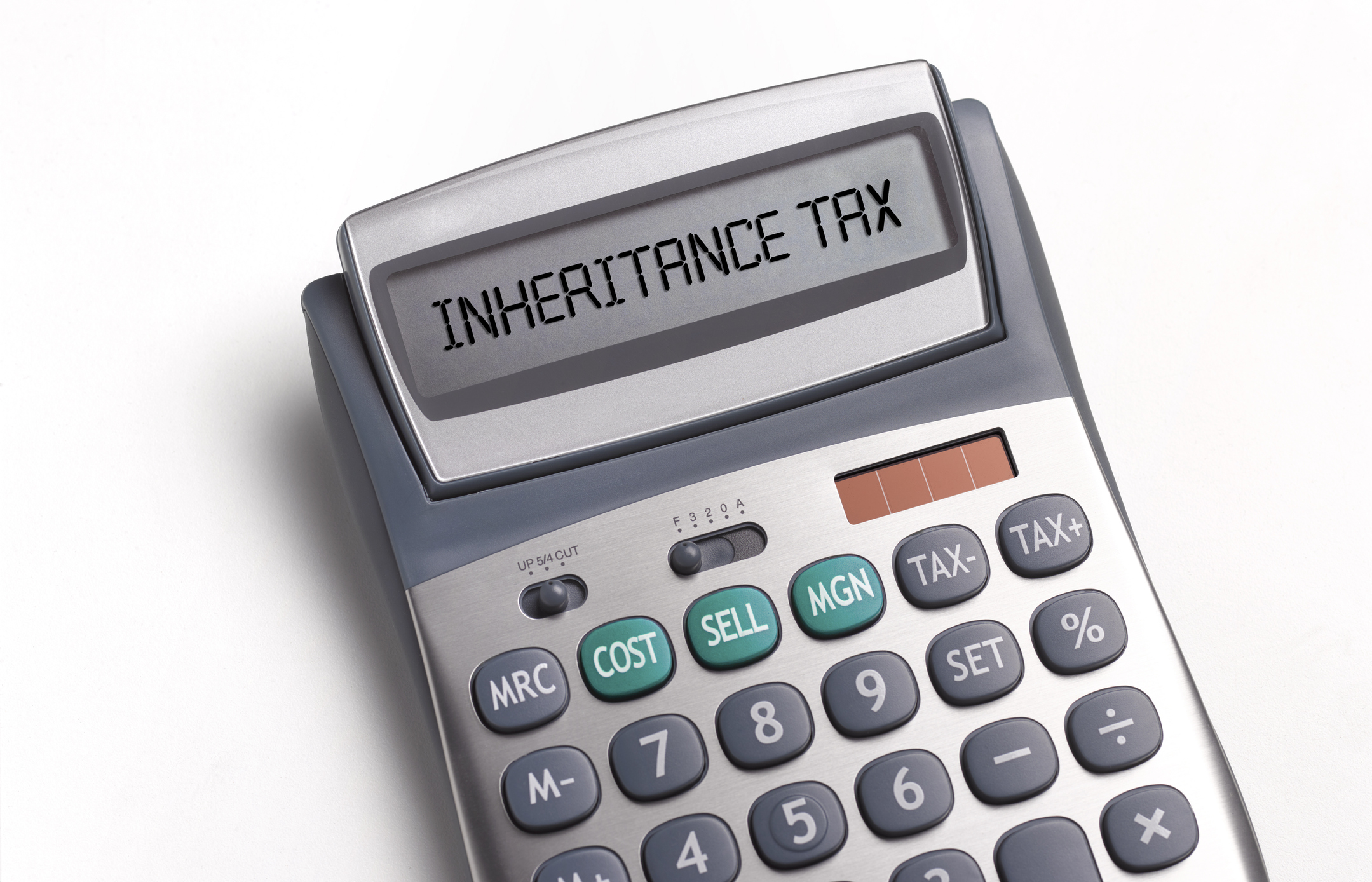One in five taxpayers to pay higher rate of income tax by 2027
Frozen income tax thresholds mean considerably more middle-earners will have to start paying higher-rate tax. We explain what you can do to avoid the fiscal drag.


Get the latest financial news, insights and expert analysis from our award-winning MoneyWeek team, to help you understand what really matters when it comes to your finances.
You are now subscribed
Your newsletter sign-up was successful
Want to add more newsletters?

Twice daily
MoneyWeek
Get the latest financial news, insights and expert analysis from our award-winning MoneyWeek team, to help you understand what really matters when it comes to your finances.

Four times a week
Look After My Bills
Sign up to our free money-saving newsletter, filled with the latest news and expert advice to help you find the best tips and deals for managing your bills. Start saving today!
One in five taxpayers will be paying higher-rate income tax by 2027, according to a leading thinktank.
The Institute for Fiscal Studies (IFS) says that many teachers, nurses and electricians are among the one in five taxpayers who will be paying the 40% tax rate (levied on those with an income between £50,271 to £150,000) because of a six-year freeze on thresholds implemented by Chancellor Jeremy Hunt and ‘fiscal drag’.
It means there will be 2.1 million more higher rate taxpayers and 350,000 additional-rate taxpayers in five years' time, according to the Office for Budget Responsibility (OBR).
MoneyWeek
Subscribe to MoneyWeek today and get your first six magazine issues absolutely FREE

Sign up to Money Morning
Don't miss the latest investment and personal finances news, market analysis, plus money-saving tips with our free twice-daily newsletter
Don't miss the latest investment and personal finances news, market analysis, plus money-saving tips with our free twice-daily newsletter
In total 7.8 million people are projected to be paying income tax at 40% or above by 2027-28.
This represents a “seismic shift” and around a quadrupling of the share of adults paying higher rates since the early 1990s, said the IFS.
In 1991-92, 3.5% of UK adults (1.6 million) paid the 40% higher rate of income tax. By 2022–23, 11% (6.1 million) were paying higher rates, the report added.
It shows that over recent decades, higher rates of income tax have gone from being reserved only for the richest to something that a far more substantial proportion of the population can expect to encounter.
The report predicted: “By 2027–28, more than one in eight nurses, one in six machinists and fitters, one in five electricians and one in four teachers are set to be higher-rate taxpayers.
“Among police officers, architects and surveyors, and legal professionals, we also see significant increases in the share paying higher-rate tax over time, with almost half of the latter two groups expected to be paying higher-rate tax in 2027-28.”
What is fiscal drag?
Wage growth is currently 6.7%, according to the Office for National Statistics. Due to the freeze on tax bands, many workers will find themselves ‘dragged’ into a higher tax band, even though they have not had a proper pay rise that leaves them better off in real terms. This is known as ‘fiscal drag’.
Calculations by Quilter show that if wage growth averages 5% per year for the next four years but income tax thresholds remain frozen, then someone earning £50,000 today will be £2,643 worse off in the 2027-28 tax year, and in total be £6,463 poorer over the four-year period.
Rachael Griffin, tax and financial planning expert at Quilter, says “High inflation means that despite someone receiving a pay rise they may not feel wealthier as their buying power remains the same - however, their salaries will be taxed much more.”
“Freezing income tax bands is a form of stealth tax as you’ll end up paying considerably more tax during the time bands are frozen, which will be on top of higher energy and food costs.”
How can I avoid fiscal drag?
Unfortunately, fiscal drag affects us all – even if you don’t change your tax band. That’s because as your pay rises with inflation, more and more of your pay packet is taxed and your overall tax burden increases.
However, prudent financial planning can help lessen the impact. Using an ISA can shelter your savings and investments from the taxman and ensure you don’t pay unnecessary tax. Using a pension can turbo-charge a retirement nest egg thanks to the power of tax relief. We also have plenty of tips on how to reduce a potential inheritance tax bill.
You may be able to take advantage of tax breaks too, like the marriage allowance. This is where one person in the couple has an income below the personal allowance (£12,570), and by transferring part of the allowance, the couple can save up to £252 in a tax year.
If a pay rise means your salary has just tipped into a higher tax band, you could use salary sacrifice to lower it.
Griffin explains: “One option might be to make additional pension contributions via salary sacrifice essentially lowering the taxable portion of your salary and potentially reducing it under the higher rate of tax threshold.”
You can also scrutinise expenses whatever your employment status. “If you’re self-employed, ensure you’re claiming for all those allowed by HMRC as a result of your work,” say Justin Modray of Candid Financial Advice.
Contributions from Katie Binn
Get the latest financial news, insights and expert analysis from our award-winning MoneyWeek team, to help you understand what really matters when it comes to your finances.

Ruth is an award-winning financial journalist with more than 15 years' experience of working on national newspapers, websites and specialist magazines.
She is passionate about helping people feel more confident about their finances. She was previously editor of Times Money Mentor, and prior to that was deputy Money editor at The Sunday Times.
A multi-award winning journalist, Ruth started her career on a pensions magazine at the FT Group, and has also worked at Money Observer and Money Advice Service.
Outside of work, she is a mum to two young children, while also serving as a magistrate and an NHS volunteer.
-
 Should you buy an active ETF?
Should you buy an active ETF?ETFs are often mischaracterised as passive products, but they can be a convenient way to add active management to your portfolio
-
 Power up your pension before 5 April – easy ways to save before the tax year end
Power up your pension before 5 April – easy ways to save before the tax year endWith the end of the tax year looming, pension savers currently have a window to review and maximise what’s going into their retirement funds – we look at how
-
 Is Britain heading for a big debt crisis?
Is Britain heading for a big debt crisis?Opinion Things are not yet as bad as some reports have claimed. But they sure aren’t rosy either, says Julian Jessop
-
 Act now to bag NatWest-owned Ulster Bank's 5.2% easy access savings account
Act now to bag NatWest-owned Ulster Bank's 5.2% easy access savings accountUlster Bank is offering savers the chance to earn 5.2% on their cash savings, but you need to act fast as easy access rates are falling. We have all the details
-
 Moneybox raises market-leading cash ISA to 5%
Moneybox raises market-leading cash ISA to 5%Savings and investing app MoneyBox has boosted the rate on its cash ISA again, hiking it from 4.75% to 5% making it one of top rates. We have all the details.
-
 October NS&I Premium Bonds winners - check now to see what you won
October NS&I Premium Bonds winners - check now to see what you wonNS&I Premium Bonds holders can check now to see if they have won a prize this month. We explain how to check your premium bonds
-
 The best packaged bank accounts
The best packaged bank accountsAdvice Packaged bank accounts can offer great value with useful additional perks – but get it wrong and you could be out of pocket
-
 Bank of Baroda closes doors to UK retail banking
Bank of Baroda closes doors to UK retail bankingAfter almost 70 years of operating in the UK, one of India’s largest bank is shutting up shop in the UK retail banking market. We explain everything you need to know if you have savings or a current account with Bank of Baroda
-
 Inheritance tax receipts on track for record year as take hits £2.6bn
Inheritance tax receipts on track for record year as take hits £2.6bnMore people are being hit by inheritance tax as rising property prices translates to more estates becoming liable for the tax.
-
 How to earn cashback on spending
How to earn cashback on spendingFrom credit cards and current accounts to cashback websites, there are plenty of ways to earn cashback on the money you spend